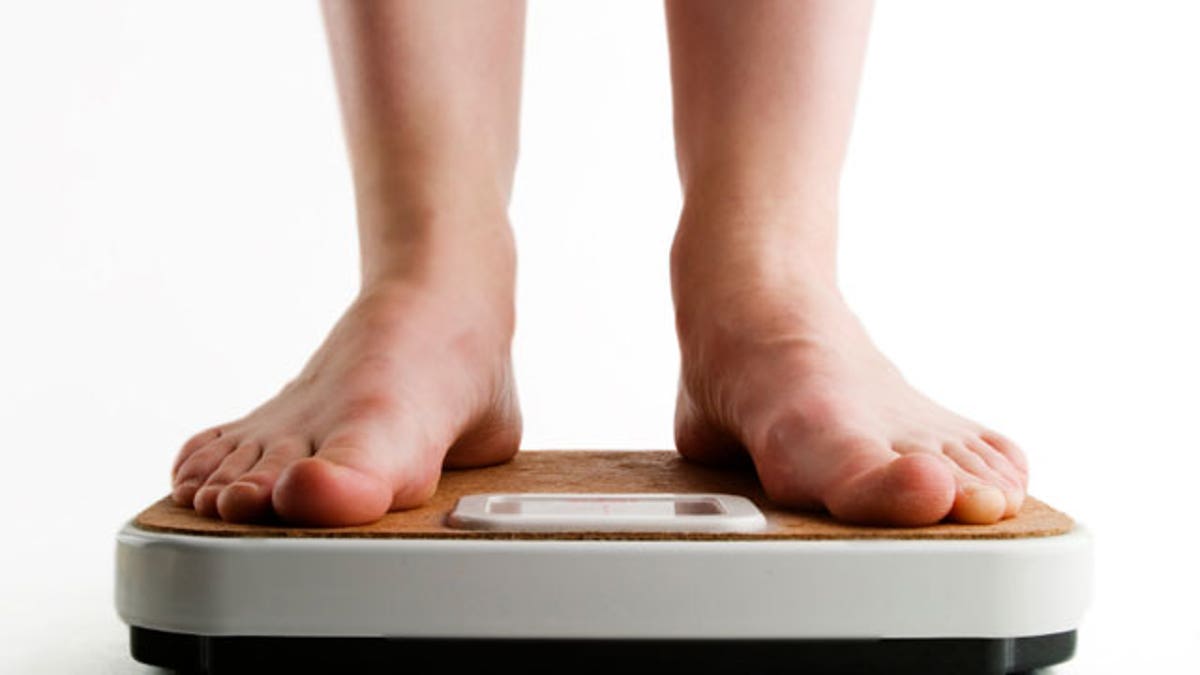
Let's face it: The rules of weight loss—eat less, move more, treats in moderation— are a drag.
And they don't fit with most dieters' quick-fix, thinner-by-dinner expectations. Cue diet crutches: tricks, based on scant science, that may speed up results. So if a friend swears that munching on grapefruit gets her into skinny jeans, or a coworker credits ice water for his sleek physique, should you try it too?
Not so fast. Some diet crutches are helpful, some harmful, and some won't do much either way. We asked registered dietitians for the bottom line ("skip it," "try it," or "do it right") on the most common diet crutches:
1. "Cleansing" your system: Skip it
It sounds simple: Drink "body-flushing" liquids and eat little or no solid food. But just because celebs do it doesn't mean you should.
"Will you see the weight loss? Absolutely. But it isn't safe, in terms of getting the nutrients you need," says Amy Shapiro, RD, founder of Real Nutrition NYC. Once you eat solid food, you'll gain back the pounds.
Because the liver and kidneys remove toxins, a "cleanse" is unnecessary and even harmful, says Sonthe Burge, RD, a nutritionist. It can cause diarrhea, "so you can't go far from a bathroom," she says. Other side effects: Headaches, lack of energy, and trouble focusing.
_______________________________________________
More From Health.com:
Best Superfoods for Weight Loss
Little Daily Tricks to Wake Up Slimmer
25 Ways to Cut 500 Calories a Day
________________________________________________
2. Filling up on fiber: Try it
"Fiber is not absorbed well by the body, but is also very filling, which makes it a great choice for people trying to lose weight," says Dr. Natalie Digate Muth, an American Council on Exercise spokesperson.
Dietitians recommend 25 to 35 grams of fiber per day (for both men and women), but most people get less than 15, says Burge. To lose weight, she suggests aiming for 30 grams of fiber per day. To add fiber to your diet, swap out white rice for barley, or add beans to soups and salads.
Don't go crazy. Too much fiber (50 to 60 grams per day) can cause side effects like flatulence and diarrhea.
3. Packing in the protein: Do it right
Bad news: Adding more bacon to your diet won't cause the pounds to melt away. That's because the addition of protein to the diet doesn't cause weight loss itself. But switching out a higher fat protein source, such as pork sausage, for a lean one like chicken or salmon does help, says Burge.
"You can't just eat protein to lose weight. When you do that, your body starts burning fat for energy," she says, because it will produce ketones, compounds that can be harmful to the brain. But consuming lean protein and good carbohydrates (like whole grains) allows your body to get the energy it needs without the added fat.
4. Snacking before exercise: Try it
Snacking before your workout? Go for it. While researchers are divided about whether eating before exercise really promotes weight loss, experts say a quick bite might just be a slimming crutch you can count on.
"A small snack before exercise helps to have a more productive workout since it gives a quick energy boost," says Muth. This energy boost can lead to a harder workout, which translates to more calories burned. She suggests munching on something high in carbs and relatively low in fat and fiber (like a banana) to minimize stomachaches and cramping.
5. Skipping meals: Skip it
"When people skip meals, they think they're saving calories," says Shapiro. But the habit always backfires. "It can wreak havoc on their metabolism, and they tend to eat more later because they're voraciously hungry."
Some research shows that as long as calories stay the same, it doesn't matter if you eat small quantities more often or large quantities less often.
Eating more small meals may help dieters to quell cravings, though, and it also discourages bingeing later, says Shapiro, who recommends meals of less than 500 calories every three to four hours.
6. Guzzling diet soda: Do it right
Does diet soda make you skinny? One study suggested diet soda drinkers may gain more weight over time than those who don't drink it. It's not clear why, but the brain may anticipate calories when foods taste sugary or fatty, so calorie-free sweeteners may spur people to overconsume later on.
But Burge says awareness is key. "If a dieter were aware that drinking diet sodas may cause cravings later on, I don't think there would be harm [in having one]," she says.
Did you hear that? One a day—meaning you probably shouldn't invest in a diet Coke tap for your kitchen counter if you're serious about weight loss.
